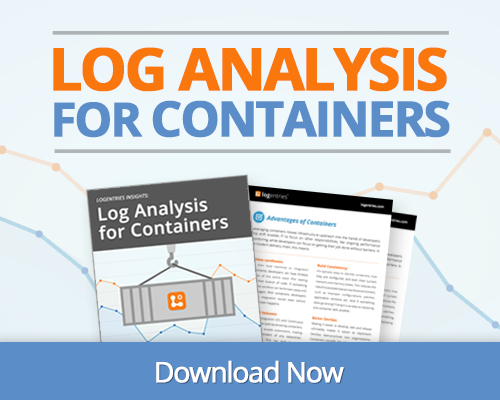This 3-part series explores the challenges presented by containers and the advantages of using an end-to-end container log monitoring solution for complete container environment visibility.

When working with containers, setting up a local image repository like Docker’s Registry can enable a team to iterate quickly, easily storing image versions in a central location to be used as needed. Yet as multiple team members update images, start, stop and restart containers on their own, the risk of uncontrolled versioning rises.
Logentries’ latest article, Log Analysis For Containers, explores several challenges presented by containers that developers and devOps professionals need to consider:
An excerpt from Logging from Containers:
Most containers are just lightweight Linux machines. Services like Docker make it easier than ever for developers to pull a new container image from DockerHub and launch the container right from their terminal. But the same convenience of running and stopping containers could also lead to chaos. What if another developer updates the container image, causing future containers to perform differently than older containers. What if a developer restarts an old container with an outdated configuration?
While Docker provides command line tools for reviewing a list of available images with tags, image ids and created dates, this information is typically only available when proactively requested per host.
So how should you address challenges like uncontrolled versioning? It turns out that leveraging log data from containers and your Container Image Library can provide visibility into Image versions, resource utilization, application performance and more.
To download the full article for free, click here.
